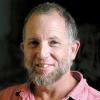David Lawson, a molecular biologist PhD, spent a long and successful career applying his scientific education to global initiatives pursued by multinational corporation Proctor and Gamble. The native of Glasgow in Scotland – where nature bakes entrepreneurial capitalism into its people – spent many years in Europe and the Far East before a final stint in the hotbed of innovation surrounding San Francisco.
“My wife Janet and I are privileged to have retired in Lewes, but I haven’t been successful at retirement,” said Lawson in an interview this week.
The entrepreneurialism and innovation bug found fertile ground in Lawson’s own molecular makeup, not to be easily shaken. As has been the case for many, retirement has become for him more of a switching of gears. But in Lawson’s case, the gear feels even higher.
In the words of musician Robert Palmer, Lawson found the pull of University of Delaware’s College of Earth, Ocean and Environment in Lewes “simply irresistible.” He sees tremendous opportunity in helping students from high school to PhD levels develop companies out of their educational research that can address global issues like climate change while creating exciting new jobs and making profits. An entrepreneur is a person who organizes and operates a business or businesses, taking on greater-than-normal financial risks to do so.
Lawson’s enthusiasm, experience and expertise led him to an associate professorship at the Lewes college where he is helping students connect entrepreneurialism and climate change. He is working with Cape Henlopen High School students who he says can bicycle out to the Lewes campus from the high school and join in his classes to learn about entrepreneurialism and science while also earning UD credits.
Then came formation of the Lewes Entrepreneurial Society. “That grew out of a conversation we had with Khalil Saliba when he stopped by our house while campaigning for a Lewes council seat. We agreed these efforts are worthwhile, but we needed a network to bring people in. So we put out the word in an informal fashion, set up a meeting, and 17 people showed up – entrepreneurs. Lots of energy and excitement.”
Lawson not only talks the talk, he also walks the walk.
He is chief technology officer for CH4 Global, a company operating in Australia and New Zealand to grow and harvest seaweed as feed for ruminants like cows. The digestion of traditional feeds by millions and millions of cattle in dairy and beef herds around the world reportedly creates enormous amounts of methane gas, contributing significantly to warming of the atmosphere and related problems. Studies have found using seaweed as feed produces far less methane gas. Lawson said his company has raised $16 million in venture capital to advance the initiatives.
The CH4 Global project is one initiative honored in London a month ago as part of the United Kingdom’s celebration of sustainability projects.
The issue of belching cows is a topic mentioned in the global climate-change conference attended by President Joe Biden and other world leaders recently in Scotland.
Cash prizes for winning projects
The Lawsons are at the center of a University of Delaware program called REEF, which includes funding allowing them and their associates to award three $25,000 checks each year for five years to students so they can pursue related projects. REEF stands for Ratcliffe Eco-Entrepreneurship Fellows, in honor of the Baltimore family whose foundation provided the funding.
“Students come to my classes for three months where I teach entrepreneurial skills I learned throughout my career. Then the ones who we determine as the winners for the year can take their $25,000 and pursue their projects in an entrepreneurial framework.”
One of those projects involves the use of three-dimensional printers to create artificial coral for reseeding reefs. Another, said Lawson, involves the development of microalgae bacteria to prevent algal blooms. “It’s a species of bacteria that produces a toxin that kills the red algae that kills fish.”
He said work has begun on creating an offshore wind training center at UD’s Lewes campus. Upscaling the job force is part of the discussion. To that end, representatives of the international shipping company Maersk will be coming to Lewes next week. Maersk Training, said Lawson, provides programs for related industries and is coming to discuss the training center concept.
“Senators Carper and Coons have agreed to put $1,060,000 into the federal budget for development of the center. The university's existing wind turbine could be included in the project. The community is super interested in keeping that going. What we have to figure out now is whether that center will be a university project, a university and community partnership, or just a community project.”
Lawson said using autonomous marine vehicles for mapping the sea bottom – maintained and deployed out of a facility in Lewes – is another entrepreneurial project in development. The senators, he said, have agreed to put $1.2 million into the federal budget for that one. “The former Lewes Dairy property with its canalfront land on the other side of Pilottown Road would have been perfect for that,” said Lawson.
There’s a big movement underway toward applying the results of basic research into creation of companies.
“There’s great opportunity for students at the University of Delaware, Delaware State University, Del Tech and local high schools to solve problems with local workers. What we’re trying to do is act as facilitators for connecting with the community. We hear a lot about innovation centers at University of Delaware's main campus upstate,” said Lawson. “We want to show people down here that we’re doing the same, with innovation and entrepreneurialism.”






















































